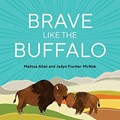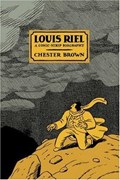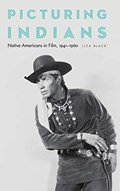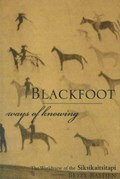Narrow Results By
- Adese, Jennifer 1
- Allan, Melissa 1
- Barnes, Barbara G. 1
- Bastien, Betty 1
- Black, Liza 1
- Blondin, Walter; Blondin, George; Goose, Leanne; Mountain, Antoine; Stewart, Sarah; Yakeleya, Raymond; and Dene Elders; foreword by Blondin, Walter. 1
- Brown, Chester 1
- Carlson-Manathara, Elizabeth and Rowe, Gladys 1
- Delehanty Pearkes, Eileen 1
- Dion, Susan D. 1
- Kovach, Margaret 1
- McFarlane, Peter and Manuel, Doreen 1
Brave like the buffalo
https://archives.whyte.org/en/permalink/catalogue26206
- Medium
- Library - Book (including soft-cover and pamphlets)
- Published Date
- 2023
- Author
- Allan, Melissa
- Publisher
- Victoria, BC : Rocky Mountain Books
- Call Number
- 07.2 Al5b
- 07.2 Al5b reference copy
- Author
- Allan, Melissa
- Responsibility
- Illustrated by Jadyn Fischer-McNab
- Publisher
- Victoria, BC : Rocky Mountain Books
- Published Date
- 2023
- Subjects
- Children
- Buffalo
- Wildlife
- Indigenous
- Indigenous People
- Cree
- Abstract
- Brave Like the Buffalo is a children’s book with a message that will inspire all readers to face the storms in their life with the help of their support systems and with a brave mindset. Baby buffalo is surprised and scared when a storm on the prairies passes through. Mama buffalo puts on a brave face and demonstrates how to use courage and bravery to get through the literal and metaphorical storms we may face in life. Written by Melissa Allan and illustrated by Cree illustrator Jadyn Fischer-McNab, this story uses a powerful animal, the buffalo, as a symbolic message and connection to Indigenous ways of knowing and being that helps to create a wonderful narrative rich with Indigenous ties and a heartwarming message around facing adversity. Brave Like the Buffalo is intended for audiences aged 4-8, to be used educationally as a way to intertwine Indigenous ways of knowing and being through story. -- From publisher
- ISBN
- 9781771606448
- Accession Number
- P2023.25
- Call Number
- 07.2 Al5b
- 07.2 Al5b reference copy
- Location
- Reference copy located in Reading Room
- Collection
- Archives Library
This material is presented as originally created; it may contain outdated cultural descriptions and
potentially offensive content.
Read more.
Ancestors : indigenous peoples of Western Canada in historic photographs
https://archives.whyte.org/en/permalink/catalogue25527
- Medium
- Library - Book (including soft-cover and pamphlets)
- Published Date
- 2021
- Publisher
- Edmonton, Alberta : University of Alberta Library
- Call Number
- 07.2 C24a
- 07.2 C24a copy 2
- Responsibility
- Edited by Sarah Carter and Inez Lightning
- Publisher
- Edmonton, Alberta : University of Alberta Library
- Published Date
- 2021
- Physical Description
- x, 188 pages : illustrations (some color) ; 23 x 24 cm
- Abstract
- This exhibition catalogue introduces historic photographs of Indigenous peoples of Western Canada from a collection housed at the University of Alberta's Bruce Peel Special Collections. The publication focuses on the ancestors represented in the collection and how their images continue to generate stories and meanings in the present. The selected photographs contribute to a richer, deeper understanding of the past. There is strength, character, persistence, determination, artwork, humour, dance, celebration, and so much more in the photographs. Some serve as records of cherished landscapes that may have been altered. Others provide links to ancestors: revered leaders, soldiers, healers, thinkers, and orators. The curators hope that the process of identifying the people in these photographs, only begun here, will continue. (Provided by Publisher)
- Contents
- Foreword / Chief Willie Littlechild ; The nature of the collection and its challenges ; Western Canada in the late Nineteenth and early Twentieth Centuries ; The aims of the curators ; The Exhibition
- ISBN
- 9781551954547
- Accession Number
- P2022.05
- Call Number
- 07.2 C24a
- 07.2 C24a copy 2
- Collection
- Archives Library
This material is presented as originally created; it may contain outdated cultural descriptions and
potentially offensive content.
Read more.
Louis Riel : a comic strip biography
https://archives.whyte.org/en/permalink/catalogue25659
- Medium
- Library - Book (including soft-cover and pamphlets)
- Published Date
- 2022
- Author
- Brown, Chester
- Publisher
- Montreal : Drawn and Quarterly
- Call Number
- 07.2 C82n
- Author
- Brown, Chester
- Publisher
- Montreal : Drawn and Quarterly
- Published Date
- 2022
- Physical Description
- 270 pages : chiefly illustrations
- Subjects
- Graphic novel
- Indigenous
- Louis Riel
- Metis
- Rebellion
- Abstract
- This award-winning Canadian best seller tells the story of the charismatic, and perhaps mad, ninetheeth century Metis leader, whose struggle to win rights for his people led to violent rebellion. -- From back cover
- ISBN
- 9781894937894
- Accession Number
- P2022.14
- Call Number
- 07.2 C82n
- Collection
- Archives Library
This material is presented as originally created; it may contain outdated cultural descriptions and
potentially offensive content.
Read more.
Indigenous media arts in Canada : making, caring, sharing
https://archives.whyte.org/en/permalink/catalogue25729
- Medium
- Library - Book (including soft-cover and pamphlets)
- Published Date
- 2023
- Publisher
- Waterloo, Ontario : Wilfrid Laurier University Press
- Call Number
- 07.2 C54m
- Responsibility
- Edited by Dana Claxton and Ezra Winton
- Publisher
- Waterloo, Ontario : Wilfrid Laurier University Press
- Published Date
- 2023
- Physical Description
- 437 pages
- Abstract
- A timely and crucial collection of essays and conversations focused on Indigenous-settler cultural politics and the ethics of Indigenous representation in Canada’s media arts that explores issues of narrative sovereignty, cultural identity, cultural resistance and decolonizing creative practices. -- Provided by publisher.
- ISBN
- 9781771125413
- Accession Number
- P2023.15
- Call Number
- 07.2 C54m
- Collection
- Archives Library
This material is presented as originally created; it may contain outdated cultural descriptions and
potentially offensive content.
Read more.
Picturing indians : native Americans in film, 1941-1960
https://archives.whyte.org/en/permalink/catalogue25516
- Medium
- Library - Book (including soft-cover and pamphlets)
- Published Date
- 2020
- Author
- Black, Liza
- Publisher
- Lincoln, Nebraska : University of Nebraska
- Call Number
- 07.2 B57p
- Author
- Black, Liza
- Publisher
- Lincoln, Nebraska : University of Nebraska
- Published Date
- 2020
- Physical Description
- xxi, 327 pages : illustrations ; 24 cm
- Subjects
- Indigenous
- Film making
- History
- Colonialism
- Abstract
- Liza Black critically examines the inner workings of post-World War II American films and production studios, which cast American Indian extras and actors as Native people, forcing them to come face-to-face with mainstream representations of "Indianness." -- From by publisher
- Contents
- "Just Like a Snake You'll Be Crawling in Your Own Shit": American Indians and White Narcissism ; "Indians Agree to Perform and Act as Directed": Urban Indian (and Non-Indian) Actors ; "Not Desired by You for Photographing": The Labor of American Indian (and Non-Indian) Extras ; "White May Be More Than Skin Deep": Whites in Redface ; "A Bit Thick": The Transformation of Indians into Movie Indians ; "Dig Up a Good Indian Historian": The Search for Authenticity
- ISBN
- 9780803296800
- Accession Number
- P2022.02
- Call Number
- 07.2 B57p
- Collection
- Archives Library
This material is presented as originally created; it may contain outdated cultural descriptions and
potentially offensive content.
Read more.
Brotherhood to nationhood : George Manuel and the making of the modern indian movement
https://archives.whyte.org/en/permalink/catalogue25528
- Medium
- Library - Book (including soft-cover and pamphlets)
- Published Date
- 2020
- Author
- McFarlane, Peter and Manuel, Doreen
- Publisher
- Toronto : Between the Lines
- Call Number
- 07.2 M16a
- Publisher
- Toronto : Between the Lines
- Published Date
- 2020
- Physical Description
- xxvi, 311 pages : illustrations ; 23 cm
- Subjects
- Indigenous
- History
- History-Canada
- Colonialism
- Politics
- Abstract
- George Manuel was the strategist and visionary behind the modern Indigenous movement in Canada. A three-time Nobel Peace Prize nominee, he laid the groundwork for what would become the Assembly of First Nations and was the founding president of the World Council of Indigenous Peoples. Authors Peter McFarlane and Doreen Manuel follow him on a riveting journey from his childhood on a Shuswap reserve through three decades of fierce and dedicated activism. In these pages, an all-new foreword by celebrated Mi'kmaq lawyer and activist Pam Palmater is joined by an afterword from Manuel's granddaughter, land defender Kanahus Manuel. This edition features new photos and previously untold stories of the pivotal roles that the women of the Manuel family played--and continue to play--in the battle for Indigenous rights.
- ISBN
- 9781771135108
- Accession Number
- P2021.02
- Call Number
- 07.2 M16a
- Collection
- Archives Library
This material is presented as originally created; it may contain outdated cultural descriptions and
potentially offensive content.
Read more.
The geography of memory : reclaiming the cultural, natural and spiritual history of the Snayackstx (Sinixt) First people
https://archives.whyte.org/en/permalink/catalogue25654
- Medium
- Library - Book (including soft-cover and pamphlets)
- Published Date
- 2022
- Author
- Delehanty Pearkes, Eileen
- Publisher
- Calgary : Rocky Mountain Books
- Call Number
- 07.2 D37a
- Author
- Delehanty Pearkes, Eileen
- Publisher
- Calgary : Rocky Mountain Books
- Published Date
- 2022
- Physical Description
- 1 volume : illustrations (black and white) ; 23 cm
- Abstract
- This compact book records a quest for understanding, to find the story behind the Snayackstx (Sinixt) First Nation. Known in the United States as the Arrow Lakes Indians of the Colville Confederated Tribes, the tribe lived along the upper Columbia River and its tributaries for thousands of years. In a story unique to First Nations in Canada, the Canadian federal government declared them “extinct” in 1956, eliminating with the stroke of a pen this tribe’s ability to legally access 80 per cent of their trans-boundary traditional territory. Part travelogue, part cultural history, the book details the culture, place names, practices, and landscape features of this lost tribe of British Columbia, through a contemporary lens that presents all readers with an opportunity to participate in reconciliation. -- From publisher
- ISBN
- 9781771605212
- Accession Number
- P2022.14
- Call Number
- 07.2 D37a
- Collection
- Archives Library
This material is presented as originally created; it may contain outdated cultural descriptions and
potentially offensive content.
Read more.
Beyond the orange shirt story
https://archives.whyte.org/en/permalink/catalogue25692
- Medium
- Library - Book (including soft-cover and pamphlets)
- Published Date
- 2021
- Author
- Webstad, Phyllis
- Publisher
- Medicine Wheel Publishing
- Call Number
- 07.2 W39b
- Author
- Webstad, Phyllis
- Publisher
- Medicine Wheel Publishing
- Published Date
- 2021
- Physical Description
- 102 pages
- Abstract
- Beyond the Orange Shirt Story is a unique collection of truths that articulate the lives and experiences of some Residential School Survivors and their families. Compiled by Phyllis Webstad, Residential School Survivor and Founder of the Orange Shirt Day movement, this book will give readers an up-close look at what life was like for many Survivors -- before, during, and after their Residential School experiences. These personal Survivor accounts, relayed in a number of one on one interviews, are authentically shared in their own voices.-- Provided by Publisher
- Contents
- 1. Phyllis Webstad -- 2. Suzanne Edward Jim (Phyllis Webstad's great-grandmother) -- 3. Helena (Lena) Jack (Nee Billy) (Phyllis Webstad's grandmother) -- 4. Rose Wilson Nee Jack (Phyllis Webstad's mother) -- 5. Theresa Jack (Phyllis Webstad's auntie) -- 6. Hazel Agness Jack (Phyllis Webstad's auntie) -- 7. Jeremy Boston (Phyllis Webstad's son) -- 8. Mason and Blake Murphy (Phyllis Webstad's grandchildren) -- 9. Lynn Eberts (Phyllis Webstad's elementary school teacher) -- 10. Photos of Phyllis Webstad's family -- 11. St. Joseph's Mission Residential School.
- ISBN
- 9781989122754
- Accession Number
- P2022.14
- Call Number
- 07.2 W39b
- Collection
- Archives Library
This material is presented as originally created; it may contain outdated cultural descriptions and
potentially offensive content.
Read more.
Braiding sweetgrass for young adults : indigenous wisdom, scientific knowledge, and the teachings of plants
https://archives.whyte.org/en/permalink/catalogue25691
- Medium
- Library - Book (including soft-cover and pamphlets)
- Published Date
- 2022
- Author
- Wall Kimmerer, Robin
- Publisher
- Minneapolis : Zest Books
- Call Number
- 07.2 W15s
- Author
- Wall Kimmerer, Robin
- Responsibility
- Adapted by Monique Gray Smith ; Illustrations by Nicole Neidhardt
- Publisher
- Minneapolis : Zest Books
- Published Date
- 2022
- Physical Description
- 303 pages : illustrations ; 22 cm
- Abstract
- Botanist Robin Wall Kimmerer's best-selling book Braiding Sweetgrass is adapted for a young adult audience by children's author Monique Gray Smith, bringing Indigenous wisdom, scientific knowledge, and the lessons of plant life to a new generation.-- Provided by publisher.
- Contents
- Meeting sweetgrass. An invitation to remember ; Skywoman falling ; Wiingaashk -- Planting sweetgrass. The council of pecans ; The gift of strawberries ; An offering ; Asters and goldenrod -- Tending sweetgrass. Maple sugar moon ; Witch hazel ; Allegiance to gratitude -- Picking sweetgrass.Epiphany in the beans ; The three sisters ; Wisgaak Gokpenagen : a black ash basket ; Mishkos Kenomagwen : the teachings of grass ; Maple nation : a citizenship guide ; The honorable harvest -- Braiding sweetgrass. In the footsteps of Nanabozho : becoming indigenous to place ; Sitting in a circle ; Burning cascade head ; Putting down roots ; Old-growth children -- Burning sweetgrass. Windigo footprints People of corn, people of light ; Shkitagen : People of the seventh fire ; Defeating Windigo.
- ISBN
- 9781728458991
- Accession Number
- P2023.03
- Call Number
- 07.2 W15s
- Collection
- Archives Library
This material is presented as originally created; it may contain outdated cultural descriptions and
potentially offensive content.
Read more.
Indigenous methodologies : characteristics, conversations, and contexts
https://archives.whyte.org/en/permalink/catalogue25730
- Medium
- Library - Book (including soft-cover and pamphlets)
- Published Date
- 2021
- Author
- Kovach, Margaret
- Publisher
- Toronto ; Buffalo ; London : University of Toronto Press
- Call Number
- 07.2 K84i
- Author
- Kovach, Margaret
- Publisher
- Toronto ; Buffalo ; London : University of Toronto Press
- Published Date
- 2021
- Physical Description
- xii, 313 pages : illustrations ; 23 cm
- Abstract
- An innovative and important contribution to Indigenous research approaches, this revised second edition provides a framework for conducting Indigenous methodologies, serving as an entry point to learn more broadly about Indigenous research. -- Provided by publisher.
- Contents
- Prologue: opening the circle -- Introduction -- Part One: Starting Indigenous methodologies -- Indigenous methodologies and qualitative inquiry -- Indigenous conceptual framing in Indigenous methodologies -- Part Two: Four foundations: Indigenous conceptual framing in Indigenous methodologies -- Epistemology and research: centring Indigenous knowledges -- Indigenous ethics and axiology: miny´o (A Good Way) -- Engaging with the Indigenous community in research -- Preparations: situating self, culture, and purpose in Indigenous methodologies -- Part Three: Applying Indigenous methodologies -- Story and method in Indigenous methodologies -- Indigenous theorizing -- Analysing, interpreting, and meaning making -- Presenting findings, metamorphic framing, and representation -- Oral dissemination and capacity building in Indigenous methodologies -- Part Four: Indigenous methodologies strong -- Conclusion: decolonizing the academy through asserting Indigenous methodologies -- Closing circle words and an epilogue.
- ISBN
- 9781487525644
- Accession Number
- P2023.15
- Call Number
- 07.2 K84i
- Collection
- Archives Library
This material is presented as originally created; it may contain outdated cultural descriptions and
potentially offensive content.
Read more.
Carrying the burden of peace : reimagining Indigenous masculinities through story
https://archives.whyte.org/en/permalink/catalogue25728
- Medium
- Library - Book (including soft-cover and pamphlets)
- Published Date
- 2021
- Author
- McKegney, Sam
- Publisher
- Regina, Saskatchewan, Canada : University of Regina Press
- Call Number
- 07.2 M19c
- Author
- McKegney, Sam
- Publisher
- Regina, Saskatchewan, Canada : University of Regina Press
- Published Date
- 2021
- Physical Description
- xxxiii, 263 pages : illustrations ; 24 cm
- Subjects
- Indigenous
- Indigenous Culture
- Indigenous Customs
- Indigenous Peoples
- Indigenous Traditions
- Masculinity
- Canada
- History
- Abstract
- Through rigorous engagement with Indigenous literary art, Carrying the Burden of Peace highlights the decolonial potential of Indigenous masculinities. Can a critical examination of Indigenous masculinities be an honour song--one that celebrates rather than pathologizes; one that seeks diversity and strength; one that overturns heteropatriarchy without centering settler colonialism? Can a critical examination of Indigenous masculinities even be creative, inclusive, erotic? Carrying the Burden of Peace answers affirmatively. Countering the perception that masculinity has been so contaminated as to be irredeemable, the book explores Indigenous literary art for understandings of masculinity that exceed the impoverished inheritance of colonialism. Carrying the Burden of Peace weaves together stories of Indigenous life, love, eroticism, pain, and joy to map the contours of diverse, empowered, and non-dominant Indigenous masculinities. It is from here that a more balanced world may be pursued. -- Provided by publisher.
- Contents
- Indigenous masculinities and story -- Shame and deterritorialization -- Journeying back to the body -- De(f/v)iant generosity: gender and the gift -- Masculinity and kinship -- Naked and dreaming forward: a conclusion.
- ISBN
- 9780889777934
- Accession Number
- P2023.15
- Call Number
- 07.2 M19c
- Collection
- Archives Library
This material is presented as originally created; it may contain outdated cultural descriptions and
potentially offensive content.
Read more.
Exactly what I said : translating words and worlds
https://archives.whyte.org/en/permalink/catalogue25707
- Medium
- Library - Book (including soft-cover and pamphlets)
- Published Date
- 2022
- Author
- Yeoman, Elizabeth
- Publisher
- Winnipeg, Manitoba, Canada : University of Manitoba Press
- Call Number
- 07.2 Y4e
- Author
- Yeoman, Elizabeth
- Publisher
- Winnipeg, Manitoba, Canada : University of Manitoba Press
- Published Date
- 2022
- Physical Description
- 276 pages : illustrations, map ; 23 cm
- Subjects
- Indigenous
- Indigenous Culture
- Indigenous Peoples
- Indigenous Traditions
- Language
- Translation
- Abstract
- 'You don't have to use the exact same words.... But it has to mean exactly what I said.' Thus began the ten-year collaboration between Innu elder and activist Tshaukuesh Elizabeth Penashue and Memorial University professor Elizabeth Yeoman that produced the celebrated Nitinikiau Innusi: I Keep the Land Alive, an English-language edition of Penashue's journals, originally written in Innu-aimun during her decades of struggle for Innu sovereignty. Exactly What I Said: Translating Words and Worlds reflects on that collaboration and what Yeoman learned from it. It is about naming, mapping, and storytelling; about photographs, collaborative authorship, and voice; about walking together on the land and what can be learned along the way. Combining theory with personal narrative, Yeoman weaves together ideas, memories, and experiences--of home and place, of stories and songs, of looking and listening--to interrogate the challenges and ethics of translation. Examining what it means to relate whole worlds across the boundaries of language, culture, and history, Exactly What I Said offers an accessible, engaging reflection on respectful and responsible translation and collaboration.-- Provided by publisher.
- Contents
- Introduction -- Mapping -- Walking -- Stories -- Looking -- Signs -- Literacies -- Listening -- Songs -- Wilderness
- ISBN
- 9780887552731
- Accession Number
- P2023.07
- Call Number
- 07.2 Y4e
- Collection
- Archives Library
This material is presented as originally created; it may contain outdated cultural descriptions and
potentially offensive content.
Read more.
Braided learning : illuminating indigenous presence through art and story
https://archives.whyte.org/en/permalink/catalogue25539
- Medium
- Library - Book (including soft-cover and pamphlets)
- Published Date
- 2022
- Author
- Dion, Susan D.
- Publisher
- Vancouver, B.C. : Purich Books
- Call Number
- 07.2 D62b
- Author
- Dion, Susan D.
- Publisher
- Vancouver, B.C. : Purich Books
- Published Date
- 2022
- Physical Description
- 275 pages
- Abstract
- The Truth and Reconciliation Commission and Indigenous activism have made many Canadians uncomfortably aware of how little they know about First Nations, Métis, and Inuit peoples. In Braided Learning, Lenape-Potawatomi scholar and educator Susan Dion shares her approach to learning and teaching about Indigenous histories and perspectives. Métis leader Louis Riel illuminated the connection between creativity and identity in his declaration, “My people will sleep for a hundred years, but when they awake, it will be the artists who give them their spirits back.” Using the power of stories and artwork, Dion offers respectful ways to address challenging topics including treaties, the Indian Act, the Sixties Scoop, land claims, resurgence, the drive for self-determination, and government policies that undermine language, culture, and traditional knowledge systems. Braided Learning draws on Indigenous knowledge and world views to explain perspectives that are often missing from the national narrative. This generous work is an invaluable resource for Canadians trying to make sense of a difficult past, decode unjust conditions in the present, and work toward a more equitable future. -- Provided by publisher
- Contents
- Introduction: Indigenous Presence ; Requisites for Reconciliation ; Seeing Yourself in Relationship with Settler Colonialism ; The Historical Timeline: Refusing Absence, Knowing Presence, and Being Indigenous ; Learning from Contemporary Indigenous Artists ; The Braiding Histories Stories ; Conclusion: Wuleelham - Make Good Tracks ; Glossary and Additional Resources: Making Connections, Extending Learning
- ISBN
- 9780774880794
- Accession Number
- P2022.04
- Call Number
- 07.2 D62b
- Collection
- Archives Library
This material is presented as originally created; it may contain outdated cultural descriptions and
potentially offensive content.
Read more.
Blackfoot ways of knowing : the worldview of the Siksikaitsitapi
https://archives.whyte.org/en/permalink/catalogue26211
- Medium
- Library - Book (including soft-cover and pamphlets)
- Published Date
- 2023
- Author
- Bastien, Betty
- Publisher
- Calgary : University of Calgary Press
- Edition
- 9th printing
- Call Number
- 07.2 B29b
- Author
- Bastien, Betty
- Responsibility
- Ju¨rgen W. Kremer, editor ; Duane Mistaken Chief, language consultant.
- Edition
- 9th printing
- Publisher
- Calgary : University of Calgary Press
- Published Date
- 2023
- Physical Description
- xx, 235 pages : illustrations, portraits ; 23 cm
- Subjects
- Blackfoot
- Siksikaitsitapi
- Indigenous
- Indigenous Culture
- Indigenous Customs
- Indigenous People
- Indigenous Traditions
- Indigenous Language
- Abstract
- The worldview of the Siksikaitsitapi is a journey into the heart and soul of Blackfoot culture. In sharing her personal story of coming home to reclaim her identity within that culture, Betty Bastien offers us a gateway into traditional Blackfoot ways of understanding and experiencing the world. As a scholar and researcher, Bastien is also able to place Blackfoot tradition within the context of knowledge building among indigenous peoples generally, and within an historical context of precarious survival amid colonial displacement and cultural genocide. -- From back cover
- Contents
- Context -- Introduction -- Innahkootaitsinnika'topi -- History of the Blackfoot-speaking tribes -- Introductory remarks -- Iitotasimahpi Iimitaiks -- The era of the dog or the time of the ancestors (Pre-eighteenth century) -- Ao'ta'sao'si Ponokaomita -- the era of the horse (eighteeneth century to 1880) -- Ao'maopao'si -- from when we settled in one place (1880) to today -- Cultural destruction -- policies of ordinary genocide -- Tribal protocol and affirmative inquiry -- Niinohkanistssksinipi -- Speaking personally -- Traditional knowledge in academe -- Cultural affirmation -- Protocol of affirmative inquiry -- Affirmation of indigenous knowledge -- Kakyosin -- traditional knowledge -- Kiitomohpiipotoko -- ontological responsibilities -- Siksikaitsitapi ways of knowing -- epistemology -- Knowledge is coming to know Ihtsipaitapiiyo'pa -- Kakyosin/Mokaksin -- Indigenous learning -- Niisi'powahsinni-language -- Aipommotsspistsi -- transfers -- Kaaahsinnooniksi -- grandparents -- Conclusion: renewal of ancestral responsibilities as antidote to genocide -- Deconstructing the colonized mind -- Eurocentred and Niitsitapi identity -- Reflections and implications.
- ISBN
- 9781552381090
- Accession Number
- P2023.25
- Call Number
- 07.2 B29b
- Collection
- Archives Library
This material is presented as originally created; it may contain outdated cultural descriptions and
potentially offensive content.
Read more.
Indigenous identity formation in post-secondary institutions : I found myself in the most unlikely place
https://archives.whyte.org/en/permalink/catalogue25266
- Medium
- Library - Book (including soft-cover and pamphlets)
- Published Date
- 2020
- Author
- Barnes, Barbara G.
- Voyageur, Cora J.
- Publisher
- Edmonton, Alberta : Brush Education Inc.
- Call Number
- 07.2 B26i
1 website
- Responsibility
- Barbara G. Barnes
- Cora J. Voyageur
- Publisher
- Edmonton, Alberta : Brush Education Inc.
- Published Date
- 2020
- Physical Description
- 132 pages
- Subjects
- Anthropology
- First Nations
- History
- Abstract
- This book presents a study conducted between 2005 and 2010 of 60 self-declared Indigenous university students from western Canada. The study explored Indigenous identity formation among these students through these central research questions:
- Do conventional definitions of identity, and conventional identity formation theories, offer ways to understand the identity of these Indigenous students?
- What role, if any, does postsecondary education play in the formation and/or confirmation of the identity of Indigenous students as Indigenous individuals? The study is unique for two reasons. First, little scholarly attention has been paid to Indigenous individuals’ sense of identity. While the literature and research on identity is diverse, it mostly focuses on Eurocentric definitions of identity. Second, this study emphasizes Indigenous identity formation in postsecondary institutions. This book moves beyond a simple understanding of Indigenous students’ concept of identity and delves into determining the role a university education can play in the development of an Indigenous individual’s identity (from publisher's website)
- Contents
- Preface and dedication
- Acknowledgements
- Introduction
- Find the self: a history of defining Indigenous identity in Canada
- Conventional and Indigenous concepts of identity
- A history of Indigenous education in Canada
- Who were the participants?
- Identity and Blumer's symbolic interactionism: definitions and participant responses
- Identity and Mihesuah's Native identity development theory: definition and participant responses
- The university experience
- Building on Mihesuah: a Canadian Indigenous identity formation model
- References
- About the authors
- ISBN
- 9781550598544
- Accession Number
- P2020.08
- Call Number
- 07.2 B26i
- Collection
- Archives Library
- URL Notes
- Publisher's website
Websites
This material is presented as originally created; it may contain outdated cultural descriptions and
potentially offensive content.
Read more.
Intimate integration : a history of the Sixties Scoop and the colonization of Indigenous kinship
https://archives.whyte.org/en/permalink/catalogue25725
- Medium
- Library - Book (including soft-cover and pamphlets)
- Published Date
- 2021
- Author
- Stevenson, Allyson D.
- Publisher
- Toronto, Ontario ; Buffalo, New York ; London, England : University of Toronto Press
- Call Number
- 07.2 S4i
- Author
- Stevenson, Allyson D.
- Publisher
- Toronto, Ontario ; Buffalo, New York ; London, England : University of Toronto Press
- Published Date
- 2021
- Physical Description
- xv, 328 pages : illustrations, maps, portraits ; 24 cm.
- Abstract
- Privileging Indigenous voices and experiences, Intimate Integration documents the rise and fall of North American transracial adoption projects, including the Adopt Indian and Me´tis Project and the Indian Adoption Project. The author argues that the integration of adopted Indian and Me´tis children mirrored the new direction in post-war Indian policy and welfare services. She illustrates how the removal of Indigenous children from Indigenous families and communities took on increasing political and social urgency, contributing to what we now call the "Sixties Scoop." Intimate Integration utilizes an Indigenous gender analysis to identify the gendered operation of the federal Indian Act and its contribution to Indigenous child removal, over-representation in provincial child welfare systems, and transracial adoption. Specifically, women and children's involuntary enfranchisement through marriage, as laid out in the Indian Act, undermined Indigenous gender and kinship relationships. Making profound contributions to the history of settler-colonialism in Canada, Intimate Integration sheds light on the complex reasons behind persistent social inequalities in child welfare. -- Provided by publisher
- Contents
- Bleeding heart of settler colonialism -- Adoptive kinship and belonging -- Rehabilitating the "subnormal [Me´tis] family" in Saskatchewan -- Green Lake Children's Shelter experiment : from institutionalization to integration in Saskatchewan -- Post-war liberal citizenship and the colonization of Indigenous kinship -- Child welfare as system and lived experience -- Saskatchewan's Indigenous resurgence and the restoration of Indigenous kinship and caring -- Confronting cultural genocide in the 1980s -- Conclusion : Intimate Indigenization -- Epilogue : Coming home -- Appendix: Road allowance communities in Saskatchewan.
- ISBN
- 9781487520458
- Accession Number
- P2023.12
- Call Number
- 07.2 S4i
- Collection
- Archives Library
This material is presented as originally created; it may contain outdated cultural descriptions and
potentially offensive content.
Read more.
Upholding Indigenous economic relationships : nehiyawak narratives
https://archives.whyte.org/en/permalink/catalogue25716
- Medium
- Library - Book (including soft-cover and pamphlets)
- Published Date
- 2023
- Author
- Wuttunee Jobin, Shalene
- Publisher
- Vancouver ; Toronto : UBC Press
- Call Number
- 07.2 W96u
- Author
- Wuttunee Jobin, Shalene
- Publisher
- Vancouver ; Toronto : UBC Press
- Published Date
- 2023
- Physical Description
- xv, 255 pages : illustrations ; 24 cm
- Abstract
- Upholding Indigenous Economic Relationships explains settler colonialism through the lens of economic exploitation, using Indigenous methodologies and critical approaches. What is the relationship between economic progress in the land now called Canada and the exploitation of Indigenous peoples? And what gifts embedded within Indigenous world views speak to miyo-pimâtisiwin, the good life, and specifically to good economic relations? Shalene Wuttunee Jobin draws on the knowledge systems of the nehiyawak (Plains Cree people) - whose distinctive principles and practices shape their economic behaviour - to make two central arguments. The first is that economic exploitation was the initial and most enduring relationship between newcomers and Indigenous peoples. The second is that Indigenous economic relationships are constitutive: connections to the land, water, and other human and nonhuman beings form who we are as individuals and as peoples. This groundbreaking study employs Cree narratives that draw from the past and move into the present to reveal previously overlooked Indigenous economic theories and relationships, and provides contemporary examples of nehiyawak renewing these relationships in resurgent ways. In the process, Upholding Indigenous Economic Relationships offers tools that enable us to reimagine how we can aspire to the good life with all our relations. -- Provided by publisher
- Contents
- 1. Grounding methods -- 2. Grounding economic relationships -- 3. nehiyawak peoplehood and relationality -- 4. Canada's genisis story -- 5. Warnings of insatiable greed -- 6. Indigenous women's lands and bodies -- 7. Theorizing Cree economic and governing relationships -- 8. Colonial dissonance -- 9. Principles guiding Cree economic relationships -- 10. Renewed relationships through resurgent practices --11. Upholding relations.
- ISBN
- 9780774865104
- Accession Number
- P2023.11
- Call Number
- 07.2 W96u
- Location
- Reading Room
- Collection
- Archives Library
This material is presented as originally created; it may contain outdated cultural descriptions and
potentially offensive content.
Read more.
Aboriginal TM : the cultural and economic politics of recognition
https://archives.whyte.org/en/permalink/catalogue25713
- Medium
- Library - Book (including soft-cover and pamphlets)
- Published Date
- 2022
- Author
- Adese, Jennifer
- Publisher
- Winnipeg, Manitoba, Canada : University of Manitoba Press
- Call Number
- 07.2 A3a
- Author
- Adese, Jennifer
- Publisher
- Winnipeg, Manitoba, Canada : University of Manitoba Press
- Published Date
- 2022
- Physical Description
- x, 260 pages : illustrations ; 24 cm
- Subjects
- Indigenous
- Indigenous Culture
- Indigenous People
- Indigenous Traditions
- Tourism
- Language
- Politics
- Abstract
- In Aboriginal™, Jennifer Adese explores the origins, meaning, and usage of the term "Aboriginal" and its displacement by the word "Indigenous." In the Constitution Act, 1982, the term's express purpose was to speak to the "aboriginal rights" acknowledged in Section 35(1). Yet in the wake of the Constitution's passage, Aboriginal, in its capitalized form, became far more closely aligned with Section 35(2)'s interpretation of which specific groups held those rights, and was increasingly used to describe and categorize people. More than simple legal and political vernacular, the term Aboriginal (capitalized or not) has had real-world consequences for the people it defined. Aboriginal™ argues the term was a tool used to advance Canada's cultural and economic assimilatory agenda throughout the 1980s until the mid-2010s. Moreover, Adese illuminates how the word engenders a kind of "Aboriginalized multicultural" brand easily reduced to and exported as a nation brand, economic brand, and place brand--at odds with the diversity and complexity of Indigenous peoples and communities. In her multi-disciplinary research, Adese examines the discursive spaces and concrete sites where Aboriginality features prominently: the Constitution Act, 1982; the 2010 Vancouver Olympics; the "Aboriginal tourism industry"; and the Vancouver International Airport. Reflecting on the term's abrupt exit from public discourse and the recent turn toward Indigenous, Indigeneity, and Indigenization, Aboriginal™ offers insight into Indigenous-Canada relations, reconciliation efforts, and current discussions of Indigenous identity, authenticity, and agency. -- Provided by publisher.
- Contents
- Introduction -- 1. Aboriginal, aboriginality, aboriginalism, aboriginalization: what's in a word? -- Aboriginalized multiculturalism tm: Canada's olympic national brand -- Selling Aboriginal experiences and authenticity: Canadian and Aboriginal tourism -- Marketing aboriginality and the branding of place: the case of Vancouver international airport -- Conclusion: thoughts on the end of aboriginalization and the turn to indigenization.
- Notes
- Title appears with the trademark symbol after the word "Aboriginal".
- ISBN
- 9781772840056
- Accession Number
- P2023.09
- Call Number
- 07.2 A3a
- Collection
- Archives Library
This material is presented as originally created; it may contain outdated cultural descriptions and
potentially offensive content.
Read more.
Bead by bead : constitutional rights and Métis community
https://archives.whyte.org/en/permalink/catalogue25524
- Medium
- Library - Book (including soft-cover and pamphlets)
- Published Date
- 2021
- Publisher
- Vancouver, British Columbia : University of British Columbia Press
- Call Number
- 07.2 B71b
- Responsibility
- Edited by Yvonne Boyer and Larry Chartrand
- Publisher
- Vancouver, British Columbia : University of British Columbia Press
- Published Date
- 2021
- Physical Description
- xii, 221 pages ; 24 cm
- Subjects
- Indigenous
- Metis
- Canada
- Politics
- Colonialism
- Identity
- Abstract
- What does the phrase Me´tis peoples mean in constitutional terms? As lawyers and scholars dispute forms of Me´tis identity, and debate the nature and scope of Me´tis rights under the Canadian Constitution, understanding Me´tis experience of colonization is fundamental to achieving reconciliation. In Bead by Bead, contributors address the historical denial - at both federal and provincial levels - of outstanding Me´tis concerns and Aboriginal rights claims, in particular with respect to land, resources, and governance. Tackling such themes as ongoing colonial policies, the invisibility of Me´tis women in court decisions, identity politics, and racist legal principles, they uncover the troubling issues that plague Me´tis aspirations for a just future. This nuanced analysis of the parameters that current Indigenous legal doctrines place around Me´tis rights discourse moves beyond a one-size-fits-all definition of Me´tis or a uniform approach to Aboriginal rights. By raising critical questions about self-determination, colonization, kinship, land, and other essential aspects of Me´tis lived reality, these clear-eyed essays go beyond legal theorizing and create pathways to respectful, inclusive Me´tis-Canadian constitutional relationships. (Provided by Publisher)
- Contents
- Me´tis identity captured by law: struggles over use of the category Me´tis in Canadian law / Se´bastien Grammond ; Recognition and reconciliation: recent developments in Me´tis rights law / Thomas Isaac ; Shifting the status quo: the duty to consult and the Me´tis of British Columbia / Christopher Gall and Brodie Douglas ; The resilience of Me´tis title: rejecting assumptions of extinguishment / Karen Drake and Adam Gaudry ; Where are the women? Analyzing the three Me´tis Supreme Court of Canada decisions / Brenda L. Gunn ; Manitoba Me´tis Federation and Daniels: "post-legal" reconciliation and Western Me´tis / Jeremy Patzer ; Colonial ideologies: the denial of Me´tis political identity in Canadian law / D'Arcy Vermette ; Me´tis Aboriginal rights: four legal doctrines / Darren O'Toole ; Suzerainty, sovereignty, jurisdiction: the future of Me´tis ways / Signa A. Daum Shanks.
- ISBN
- 9780774865975
- Accession Number
- P2022.04
- Call Number
- 07.2 B71b
- Collection
- Archives Library
This material is presented as originally created; it may contain outdated cultural descriptions and
potentially offensive content.
Read more.
Remembering our relations : De¨nesu liné oral histories of Wood Buffalo National Park
https://archives.whyte.org/en/permalink/catalogue26250
- Medium
- Library - Book (including soft-cover and pamphlets)
- Published Date
- 2023
- Publisher
- Calgary, Alberta : University of Calgary Press
- Call Number
- 07.2 At3r
- Responsibility
- Athabasca Chipewyan First Nation with Sabina Trimble and Peter Fortna.
- Publisher
- Calgary, Alberta : University of Calgary Press
- Published Date
- 2023
- Physical Description
- xxxiii, 307 pages cm
- Subjects
- Indigenous
- Indigenous Culture
- Indigenous Customs
- Indigenous People
- Indigenous Traditions
- Oral History
- Athabasca Chipewyan First Nations
- Wood Buffalo National Park
- Alberta
- British Columbia
- Abstract
- Elders and leaders remind us that telling and amplifying histories is key for healing. Remembering Our Relations is an ambitious collaborative oral history project that shares the story of Wood Buffalo National Park and the De¨nesu line´ peoples it displaced. Wood Buffalo National Park is located in the heart of De¨nesu line´ homelands, where Dené people have lived from time immemorial. Central to the creation, expansion, and management of this park, Canada’s largest at nearly 45, 000 square kilometers, was the eviction of De¨nesu line´ people from their home, the forced separation of Dene families, and restriction of their Treaty rights. Remembering Our Relations tells the history of Wood Buffalo National Park from a Dene perspective and within the context of Treaty 8. Oral history and testimony from Dene Elders, knowledge-holders, leaders, and community members place De¨nesu line´ voices first. With supporting archival research, this book demonstrates how the founding, expansion, and management of Wood Buffalo National Park fits into a wider pattern of promises broken by settler colonial governments managing land use throughout the twentieth and twenty-first centuries. By prioritizing De¨nesu line´ histories Remembering Our Relations deliberately challenges how Dene experiences have been erased, and how this erasure has been used to justify violence against De¨nesu line´ homelands and people. Amplifying the voices and lives of the past, present, and future, Remembering Our Relations is a crucial step in the journey for healing and justice De¨nesu line´ peoples have been pursuing for over a century. -- Provided by publisher.
- ISBN
- 9781773854113
- Accession Number
- P2024.02
- Call Number
- 07.2 At3r
- Collection
- Archives Library
This material is presented as originally created; it may contain outdated cultural descriptions and
potentially offensive content.
Read more.




















